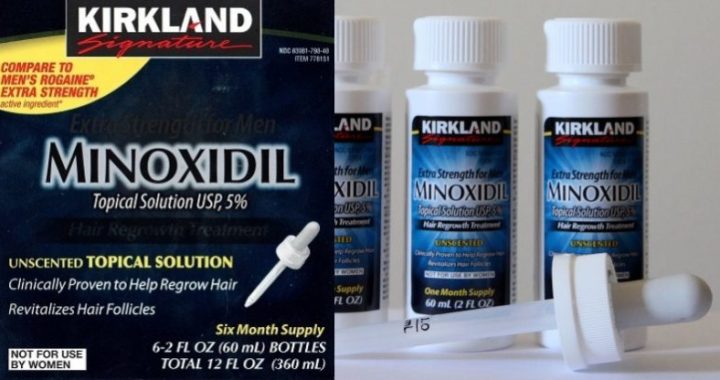Last Updated on July 22, 2023 by Robert Price
Before I get started with this review, I have a confession to make. I’m a big pharma fan.
And if I were forced to choose between a natural remedy and a proven chemical formula or pill, I’m going to choose the medication or chemical pretty much every time.
So I’m biased.
And as a hair loss researcher and consumer advocate, I believe minoxidil is ultimately a better hair loss treatment option than rosemary oil.
But nevertheless, rosemary oil has some benefits too.
In this post, while endeavoring to remain as neutral as possible in spite of my stated bias, I’m going to compare the two hair loss remedies based on five factors, including:
- Price
- Ease of use
- Aesthetics/feel
- Effectiveness
- And side effects.
This post contains affiliate links, meaning I may receive a small commission if you purchase a product via the article (at no extra cost to you). I strive to only recommend products I use or would recommend to a family member. Now, disclaimers aside, let’s begin the comparison.
Price – Winner, Rosemary Oil
While neither of these treatments is going to break the bank for most people, rosemary oil is likely to be the cheaper of the two. Liquid minoxidil can be purchased for as little as $4 per month or so Amazon, so it’s not like rosemary oil wins this category by a huge margin.
Convenience/Ease of Use – Winner, Minoxidil
While minoxidil isn’t quite as convenient as Finasteride, the highly effective and somewhat controversial hair loss drug for men, it’s still easier to use than rosemary oil, mainly because rosemary oil needs to be used in conjunction with a carrier oil in order for it to be effective. So basically, you’ll need to mix your own rosemary oil treatment formula (or buy a pre-made one, but those are usually a rip off from what I’ve seen). Accordingly, the point goes to minoxidil in this category.
Side Effects – Winner, Rosemary Oil
Both products were well-tolerated in their respective studies, with skin irritation being the primary complaint among participants. Other dermatological complaints were also noted.
A 2012, year-long minoxidil study with 984 participants found that only 3.9 percent of patients experienced side effects on the treatment. Moreover, none of the reported side effects were deemed serious by researchers. While rare, absorptive side effects such as dizziness, difficulty breathing, and chest pain are also possible with minoxidil (source). Rosemary oil isn’t known to cause any major side effects, but some users have reported dermatological complaints such as itchiness, flaking, etc.
Aesthetics/Feel – Tie
Tie. This will depend whether rubbing a chemical in your head or an essential-oil potion is more appealing to you.
Effectiveness – Winner Minoxidil
In a 2015 study, researchers compared the effectiveness of rosemary oil vs. 2% minoxidil. They found that the two treatments yielded similar results, and noted that the rosemary-oil group experienced less side effects. However, 5% minoxidil is considerably more potent than the weaker, 2% variety, so overall, it’s safe to say that minoxidil is the more effective option.
A 2002 study comparing the two minoxidil formulas found that users who applied the 5% treatment daily enjoyed 45% more regrowth vs. those who used the 2% formula (source). Bottom line: when comparing 5% minoxidil vs. rosemary oil in terms of effectiveness, the winner is minoxidil.
Point by Point Breakdown
- Affordability – Rosemary Oil
- Ease of Use – Minoxidil
- Side Effects – Rosemary Oil
- Feel/Aesthetics – Tie
- Effectiveness – Minoxidil
Overall Winner – Minoxidil
As I said, I’m a little biased here but overall, given minoxidil’s established record in the hair loss treatment realm and the fact that the studies indicate it’s more effective than rosemary oil, I’ve gotta say minoxidil is the better option in my view. That’s not to say rosemary oil doesn’t show promise or that it’s ineffective. On the contrary, I definitely believe the research indicates it can help treat hair loss to some degree. But it’s too new and there’s insufficient evidence to back its long-term efficacy, so I can’t in good conscience recommend it as a first-line option at this juncture. If you disagree (or agree), make your voice heard below.
Related Reads
- Rosemary Oil for Hair Loss – Seriously, Does It Work?
- Foam vs. Liquid Minoxidil – And the Winner Is…
- 10 Fast Facts on 10% Minoxidil
- A Long, Hard, and Honest Look at Finasteride – Is It Worth the Risk?
Robert Price is a writer, consumer advocate, and hair loss researcher with thousands of hours of experience in the field. His goal is to keep you out of the hair loss rabbit hole, underworld, or whatever you want to call it. He founded Hair Loss Daily, the unbiased hair loss blog, in 2016. You can learn more about Robert in the my story section of this website.


Minoxidil loses its effectiveness over time and if you stop using it the gains are all lost.
Rosemary oil is safe and performs better than finasteride in trials to reduce scalp DHT a cause of MPB.
winner Rosemary oil…